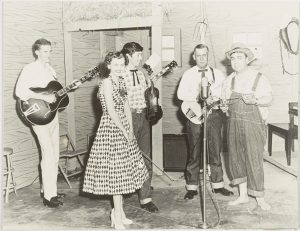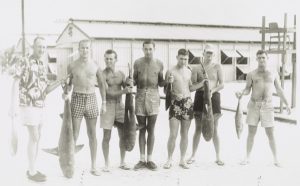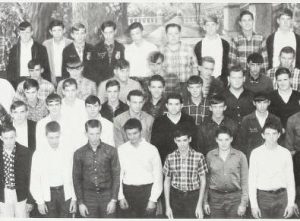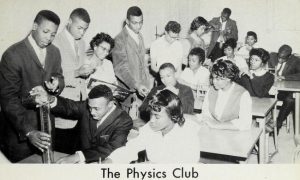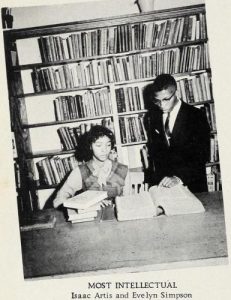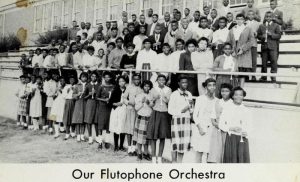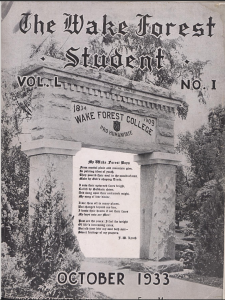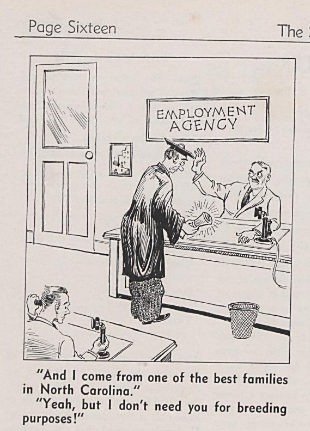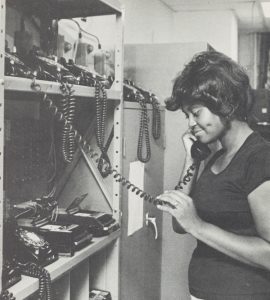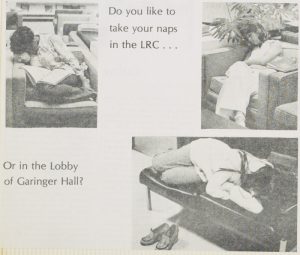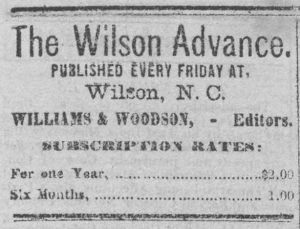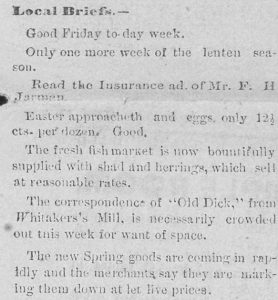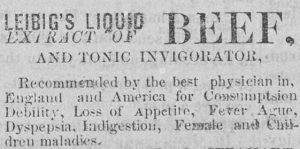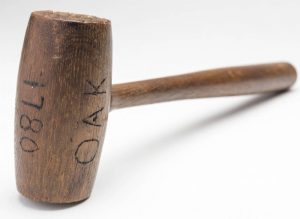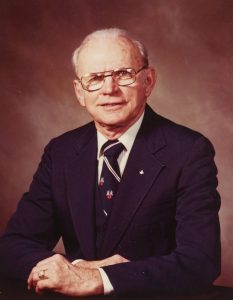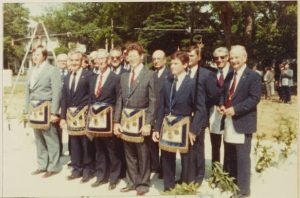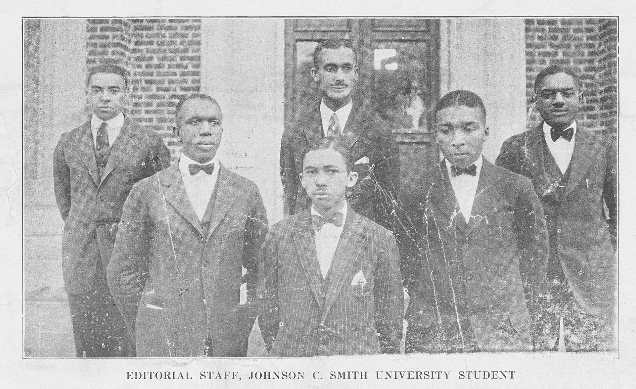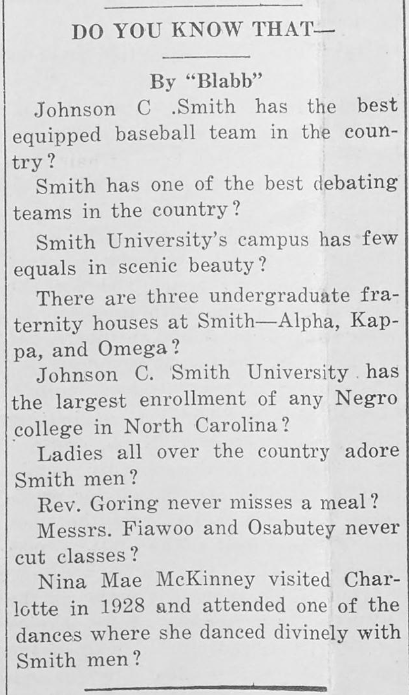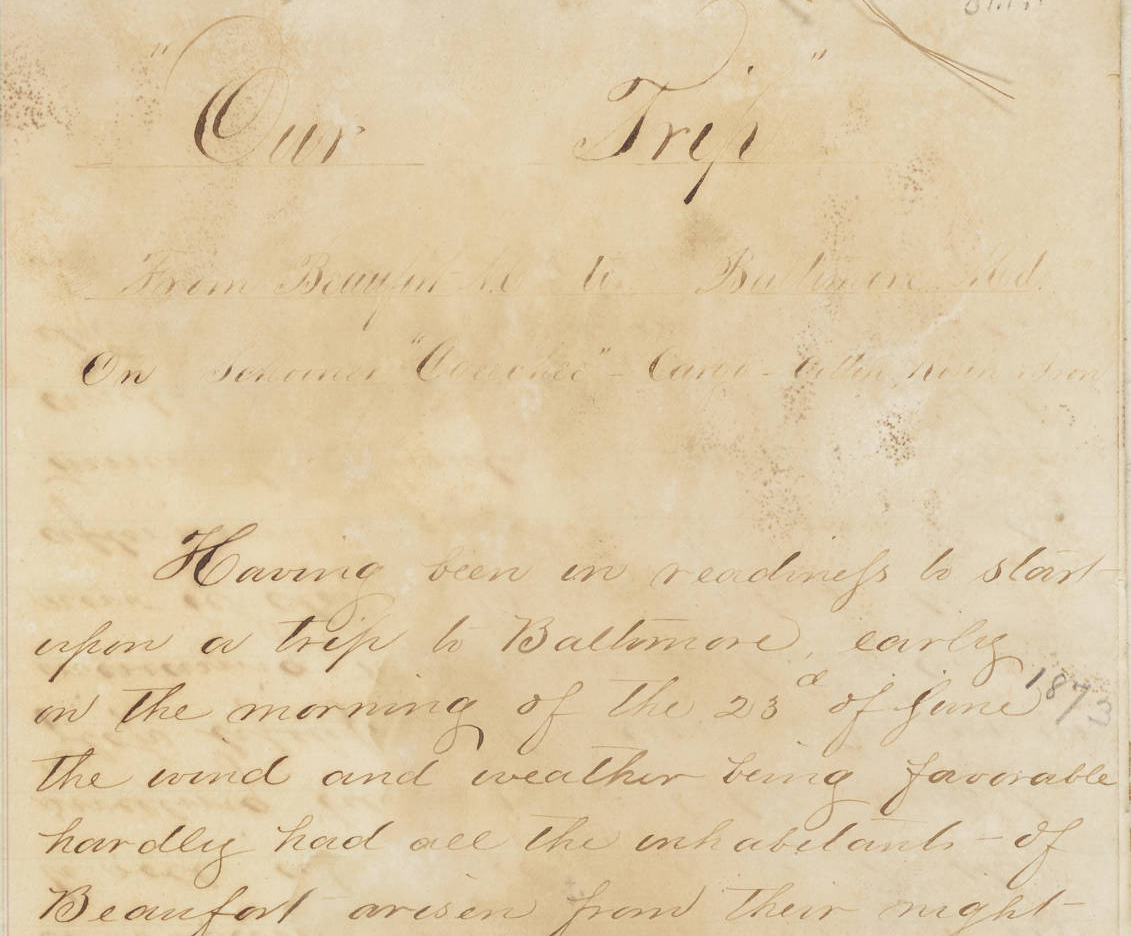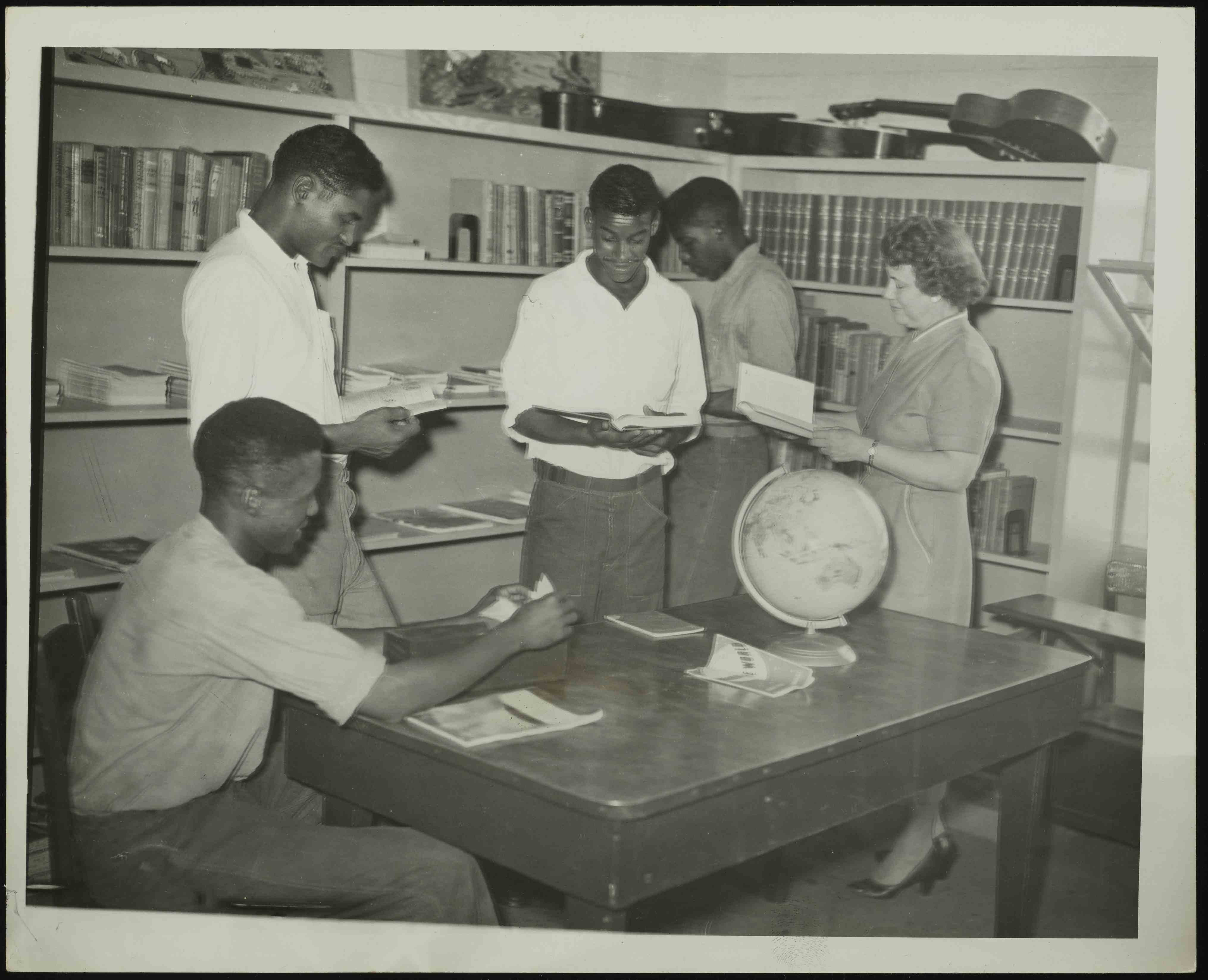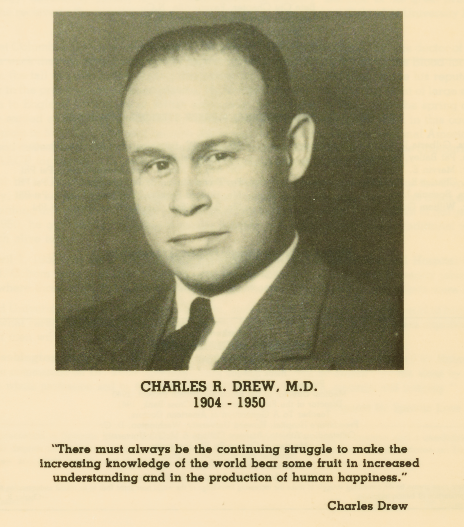 Issues of Q-Notes from 1986-1996 are now available on DigitalNC. These newspapers were shared by our partner, University of North Carolina at Charlotte, in response to our call for materials documenting voices underrepresented on DigitalNC.org. Q-notes focuses primarily on Gay and Lesbian issues both in Charlotte and nationally. At a time when LGBT communities were facing persecution and backlash against increased visibility and demands for rights, Q-Notes provided a venue for individuals to affirm their identities.
Issues of Q-Notes from 1986-1996 are now available on DigitalNC. These newspapers were shared by our partner, University of North Carolina at Charlotte, in response to our call for materials documenting voices underrepresented on DigitalNC.org. Q-notes focuses primarily on Gay and Lesbian issues both in Charlotte and nationally. At a time when LGBT communities were facing persecution and backlash against increased visibility and demands for rights, Q-Notes provided a venue for individuals to affirm their identities.

A headline from a July 1987 article.
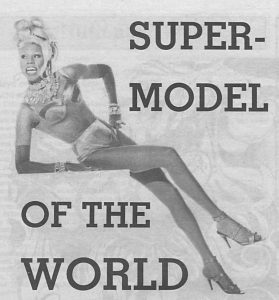
An interview with RuPaul was featured in the December 1st 1992 issue of Q-Notes.
A Q-notes interview with drag queen and musician RuPaul, who hails from Georgia and often performed in Charlotte during the 1990’s, embodies a tone taken in many Q-Notes articles. In a 1992 interview, when asked to explain her drag persona, she says “RuPaul is a universal concept. She’s about self-love and self-acceptance, being who you are and being proud of who you are.” This interview occurred right before RuPaul’s music and modeling career took off nationally, and her current success as a pop-culture star in many ways mirrors the increasing acceptance of LGBT culture within the US. Other articles in Q-Notes provided explanations for why pride festivals matter, and offered personal stories of individuals dealing with issues of self-acceptance. This decade of Q-Notes sought to connect LGBT readers to a greater community that shared their struggles and supported their identity.
In addition to interviews and articles, Q-Notes included event calendars, flyers, and ads that often use subversive imagery. These features mark Q-Notes as a proudly “underground” publication that gave voice to different subcultures. Ads especially explored many aesthetics from punk to glam, and were not afraid of irreverence.
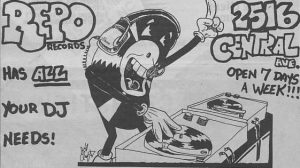
An ad for Repo Records with a punk aesthetic in the January 1996 issue of Q-Notes.
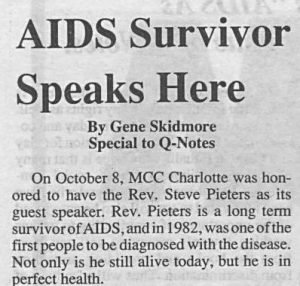
An article in the November 1989 issue of Q-Notes features Reverend Steve Pieters speaking about his experience living with AIDS.
Q-Notes also tackled serious issues. During the 1980’s and 1990’s, the AIDS epidemic was devastating LGBT communities. Stigma, misinformation, and fear surrounding AIDS was rampant, and Q-Notes published articles spreading awareness and calling on readers to advocate for organizations and federal programs fighting the epidemic. Personal stories of those living with AIDS and caring for friends and family members with AIDS joined articles analyzing different policies and treatments that could possibly curb the epidemic.
The fight for equal rights and protections is also documented in Q-Notes. Q-Notes covered large national events, such as the Second National March on Washington in 1987, which pushed for legal recognition of lesbian and gay relationships, and a presidential order banning discrimination based on sexual orientation. Articles also focused on local issues of assault and harassment. One issue included a feature by the North Carolina Coalition for Gay and Lesbian Equality that urges readers to report instances of harassment based on sexual orientation.
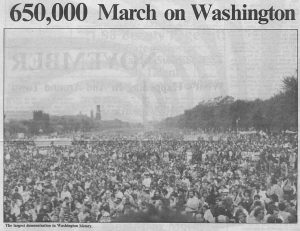
The Second March on Washington was covered in the November 1987 issue of Q-Notes. The caption declares it “the largest demonstration in Washington history.”

Part of a feature decrying harassment in the April 1st issue of Q-Notes.
Q-Notes has undergone many changes throughout the years, as have issues concerning LGBT communities. Q-Notes exists currently as qnotes and has a print and online version that continues to focus on LGBT issues in North Carolina.
To view issues of Q-Notes click here. To see more materials from University of North Carolina at Charlotte, take a look at their partner page, or learn more about them by visiting their website.
